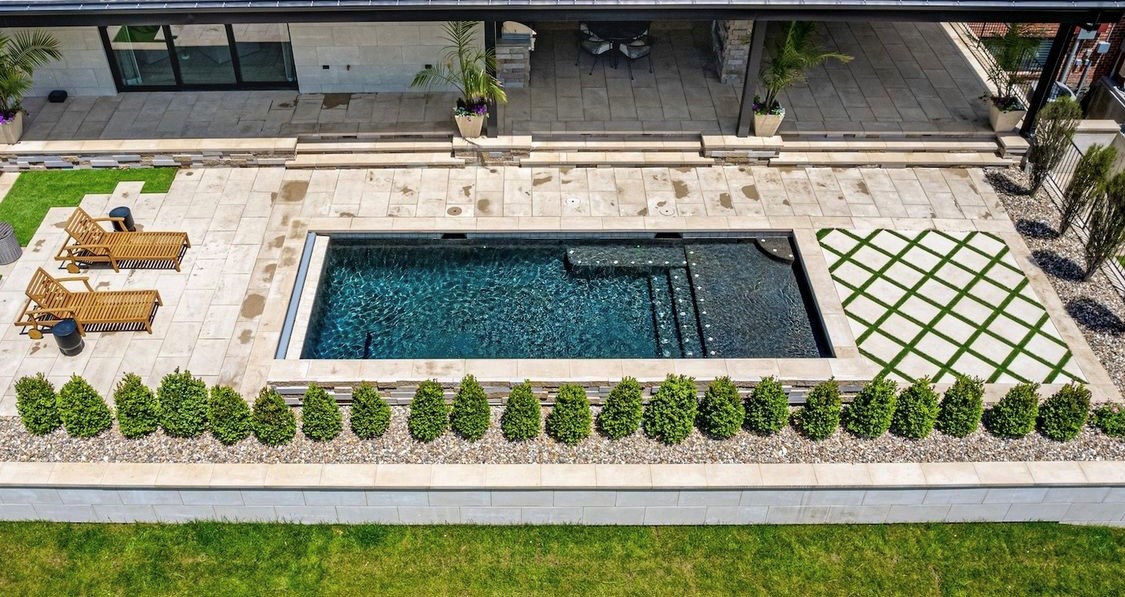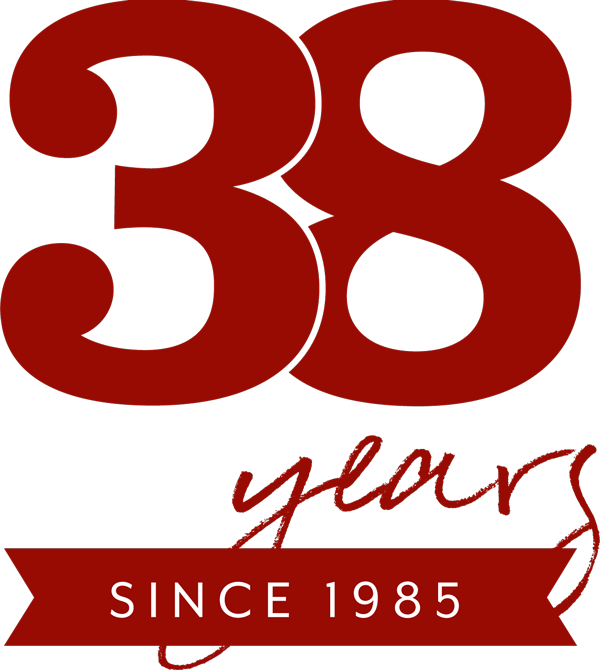The perfect outdoor living setup is often a hybridized area that blends the function and aesthetics of several indoor rooms into a single outdoor space. The backyard serves as a kitchen, recreation, and living room, simultaneously blending in plantings, lighting, pools, and shade structures. Hardscapes are the foundation of every outdoor living space; they shape every complimentary element and drive the functionality of the space.
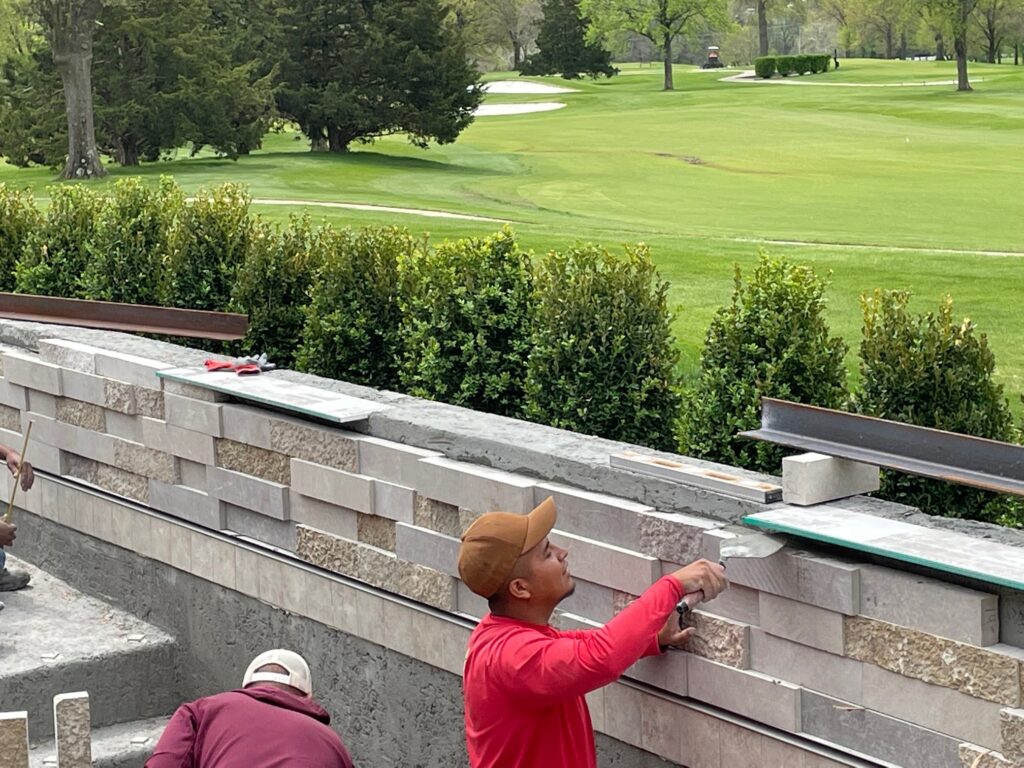 Equally important as the design, the material palette must be correlated and interesting and can create a whole spectrum of aesthetics within the same layout.
Equally important as the design, the material palette must be correlated and interesting and can create a whole spectrum of aesthetics within the same layout.
When building out our hardscape material palette, we need to evaluate the surrounding architecture. The first step is to determine if we want to match the existing materials on the structure, work within an established scheme, or build something more unique with complementary colors and textures.
Many homeowners get trapped into thinking that every surface of an outdoor space has to match exactly. It’s like running the carpet up the walls of that sweet van you had in high school, easy to make everything match but regrettable in five or ten years. In reality, cohesion creates interest more than mimicking and there are many ways to achieve that. 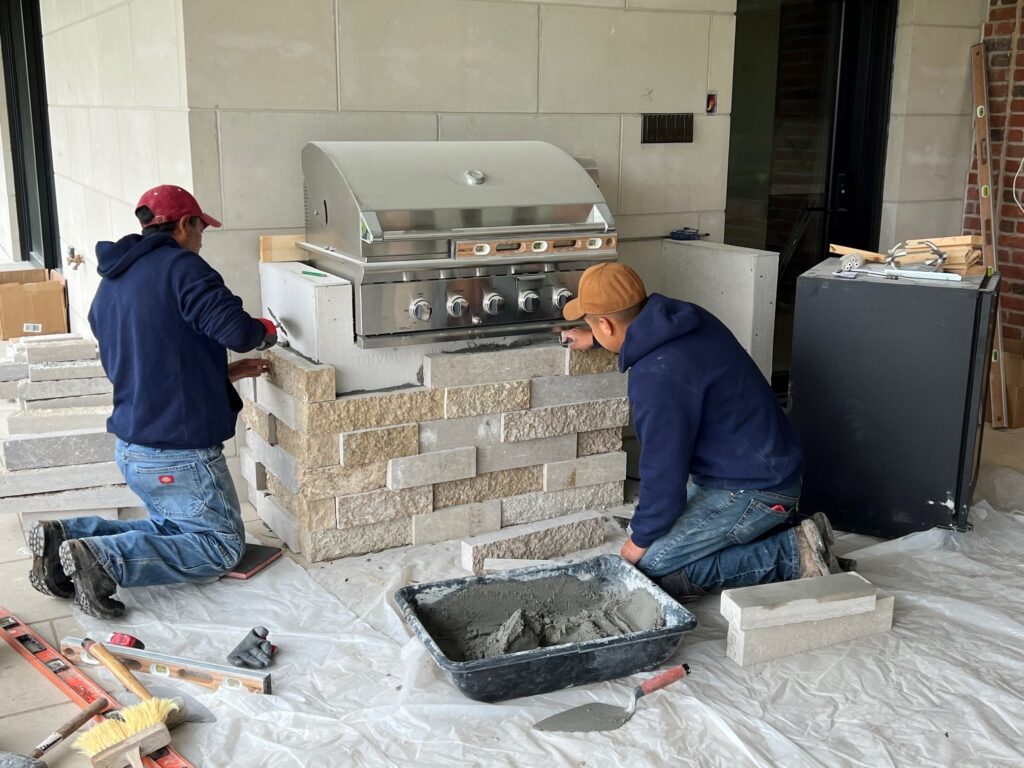
Modern designs tend to be minimalistic and incorporate straight lines and simple color palettes. This, more so than other styles, relies heavily on high quality materials to pull off the look. With a simple design and color palette, much more focus is drawn to the material itself which makes flaws and appeal equally apparent. Knowledge of the industry and hands on experience with materials is a must.
Higher end, wet-cast pavers, porcelain, and certain natural stones can give you glossy look and provide nice contrast from other mid-tier products. Altering texture is also a must. A smooth paver pairs well with a more elaborate vertical element like kitchens or walls. Mixing types of materials can deliver the same color palette but the variety of finishes provides interest and enhances the look to avoid feeling too sterile and boring.
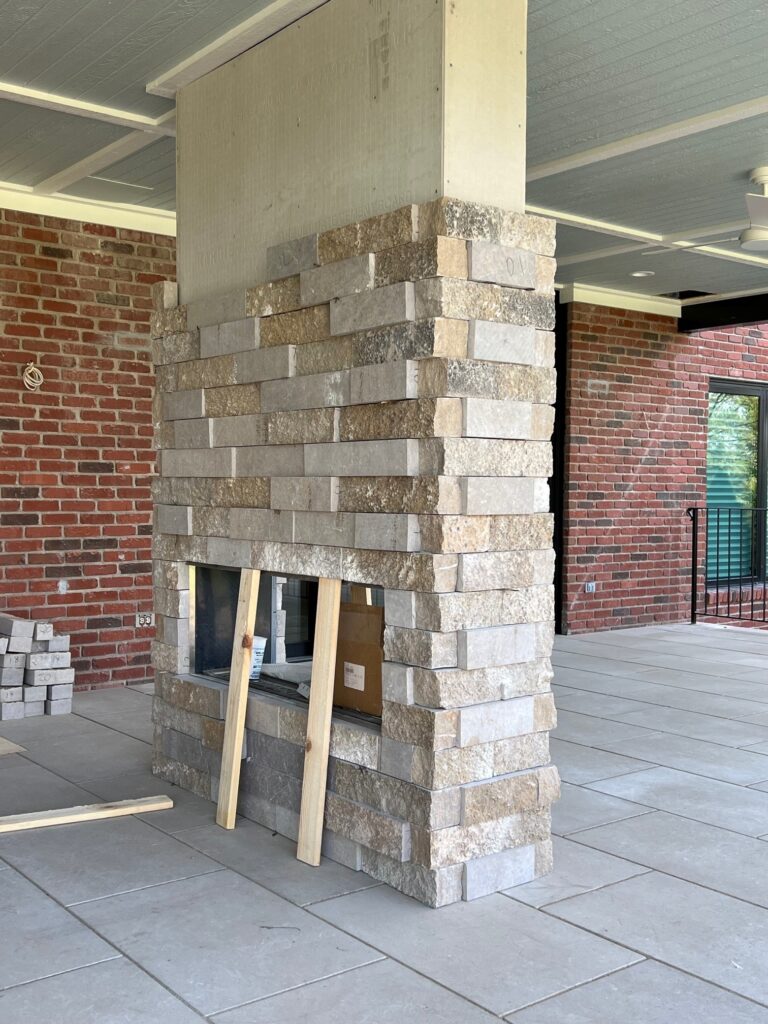 Combining cool and warm colors correctly can also create pops of color and draw the eye to key areas but needs to be used sparingly. A warm-toned patio can mesh well with a cool-toned structure as long as some elements are pulled through the hardscape. Conversely, slight variations in tone or texture yields a sleek, modern look that can still draw the eye. There is more than one right answer for every design, it just comes down to the client’s taste and the architecture.
Combining cool and warm colors correctly can also create pops of color and draw the eye to key areas but needs to be used sparingly. A warm-toned patio can mesh well with a cool-toned structure as long as some elements are pulled through the hardscape. Conversely, slight variations in tone or texture yields a sleek, modern look that can still draw the eye. There is more than one right answer for every design, it just comes down to the client’s taste and the architecture.
Building the perfect material palette is a feeling out process. Each material is interconnected so if we add bold elements in one area, it’s best to counterbalance it with simplicity in another. Regardless of style, the perfect material palette is crucial to ensure the dream design becomes the perfect reality.
Article written by Brendan Rost, Landscape Designer 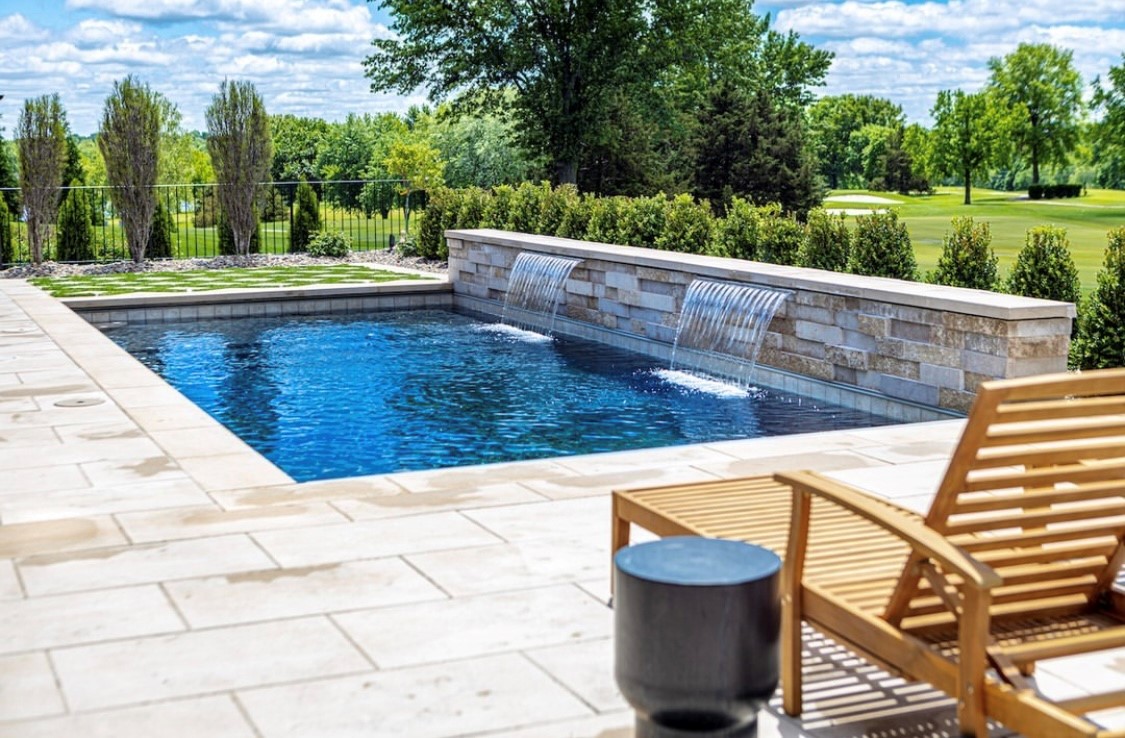
Photo by Columbia Pool & Spa
